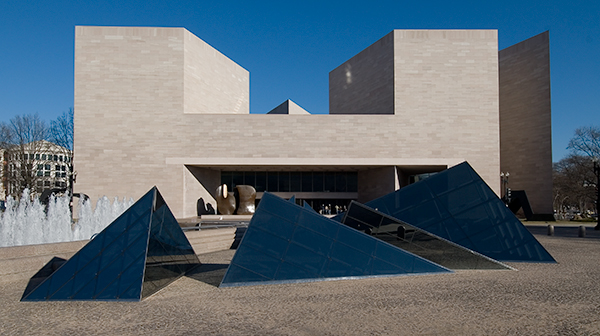
Pop Art
David Gariff, senior lecturer, National Gallery of Art. In all of art history, only one movement dared to predict public and commercial success in its very name. The distinction is appropriate, because pop art was all about commerce and consumption from the beginning. Emerging in mid-1950s Great Britain and soon spreading to the United States, pop was a creature of the postwar boom, when television, advertising, fast food, birth rates, home appliances, and suburban sprawl were quickly changing daily life in the developed world. Works by Andy Warhol, Roy Lichtenstein, and Claes Oldenburg reflect a new syntax of imagery drawn from popular culture and mass media, devoid of exalted art historical themes and the personal expression that were hallmarks of abstract expressionist painting. As part of the series Celebrating the East Building: 20th-Century Art, senior lecturer David Gariff considers the wide variety of objects, themes, and working methods that characterized pop art and the way it blurred distinctions between high art and popular culture. This lecture was presented on August 23, 2018, at the National Gallery of Art.